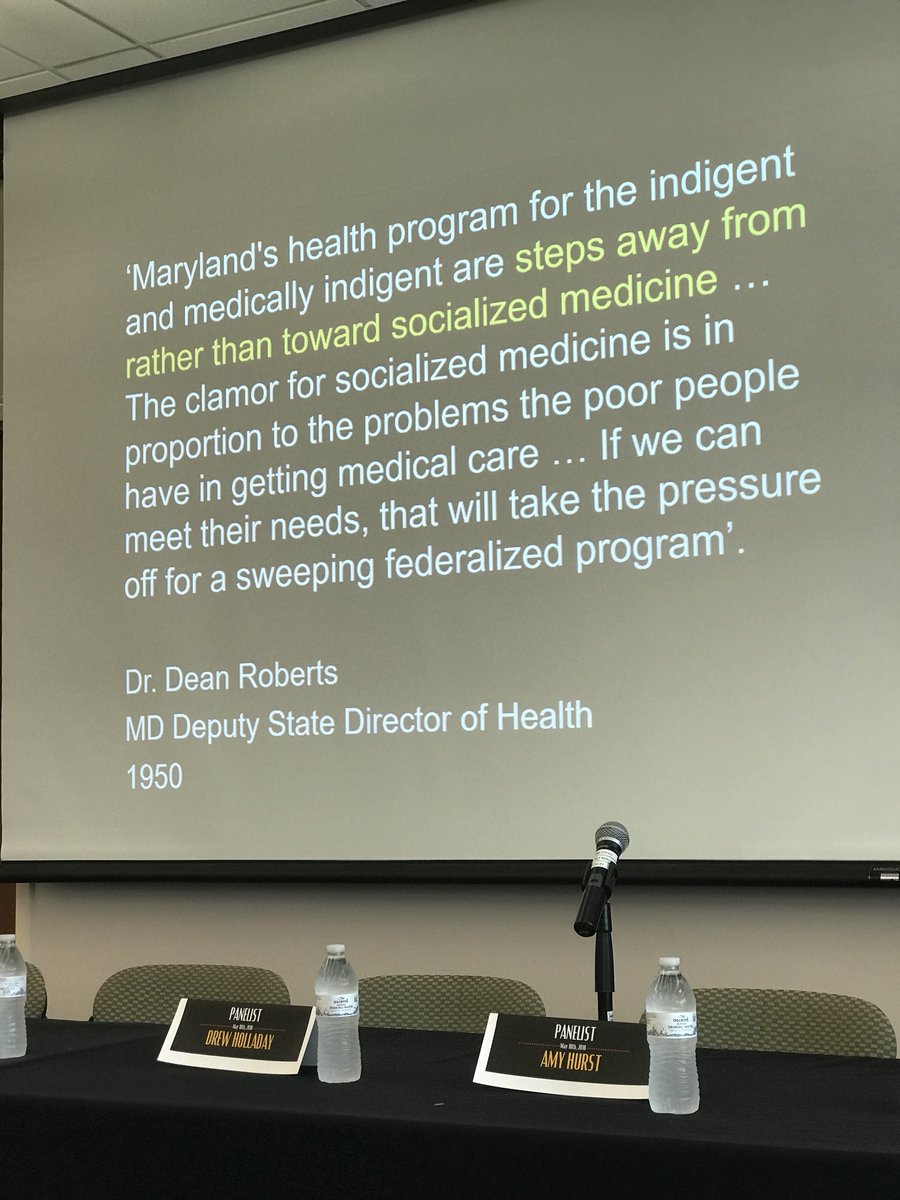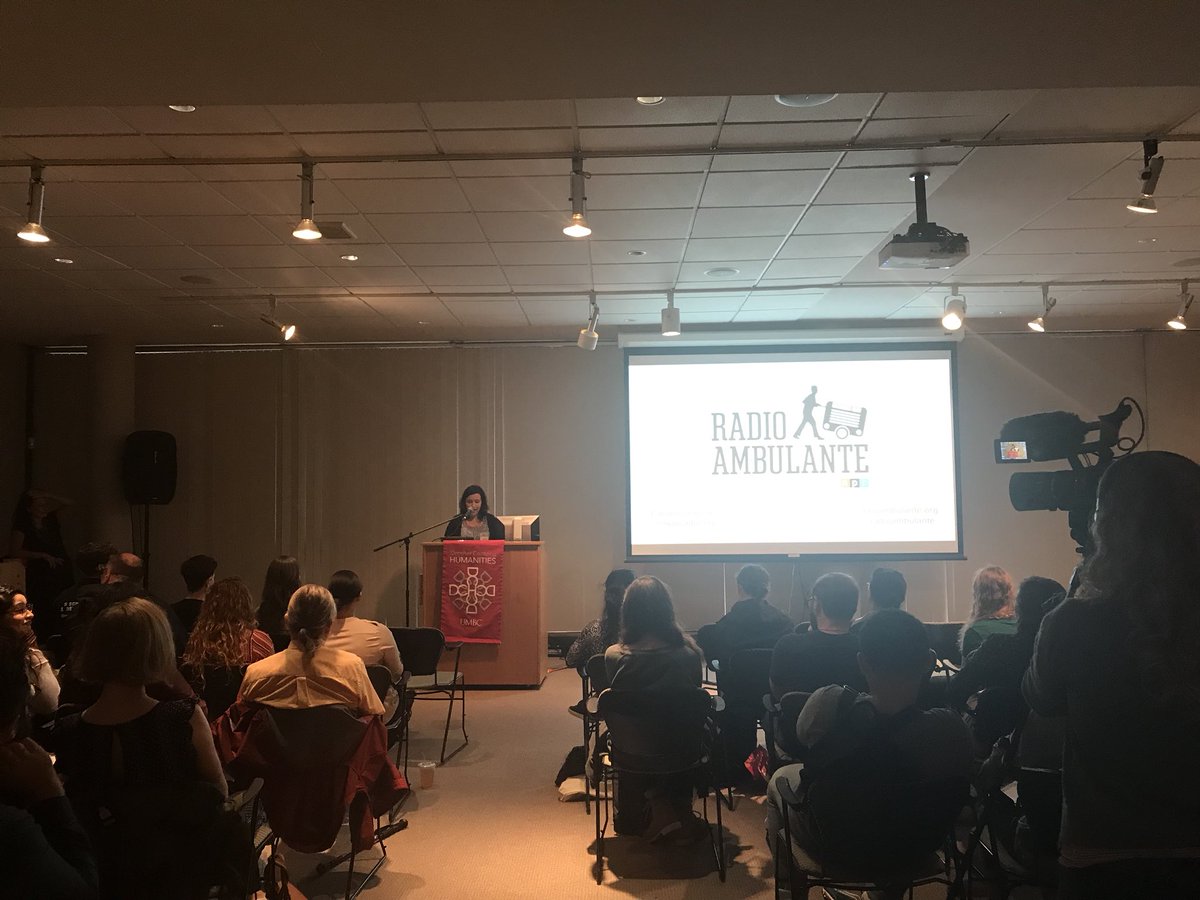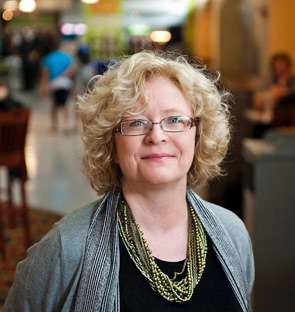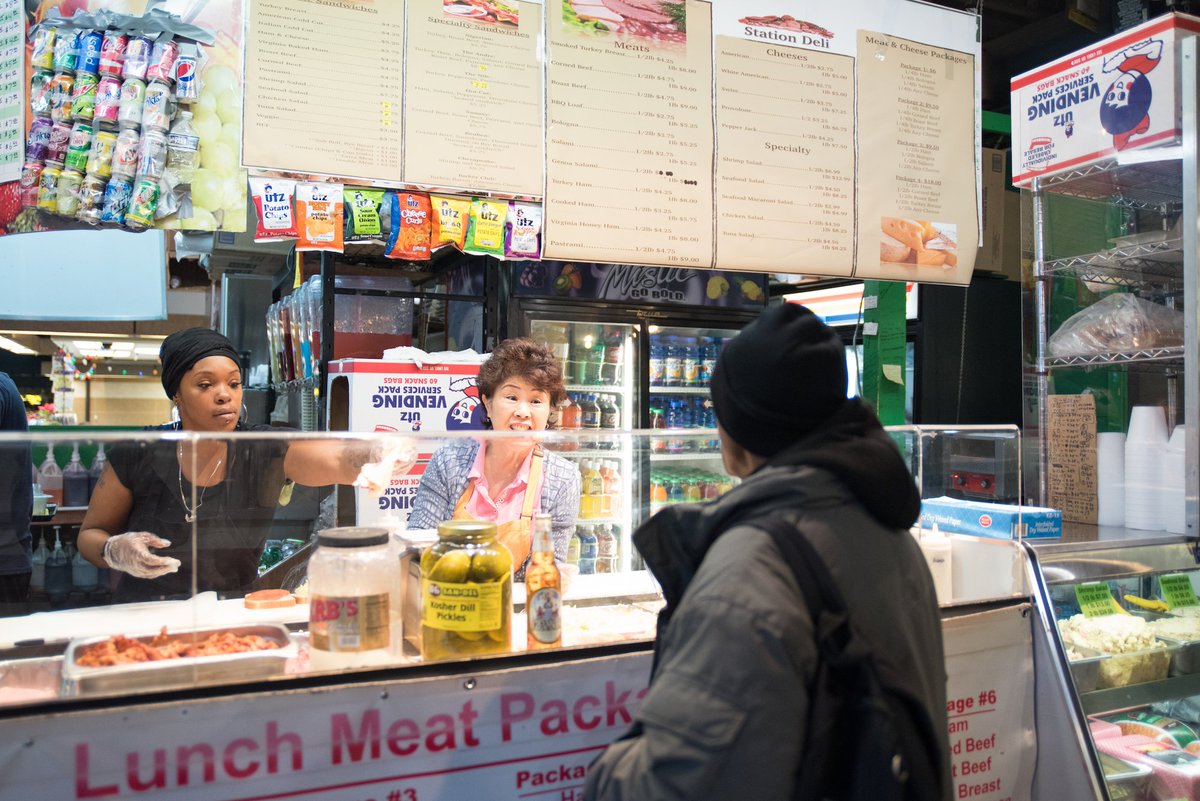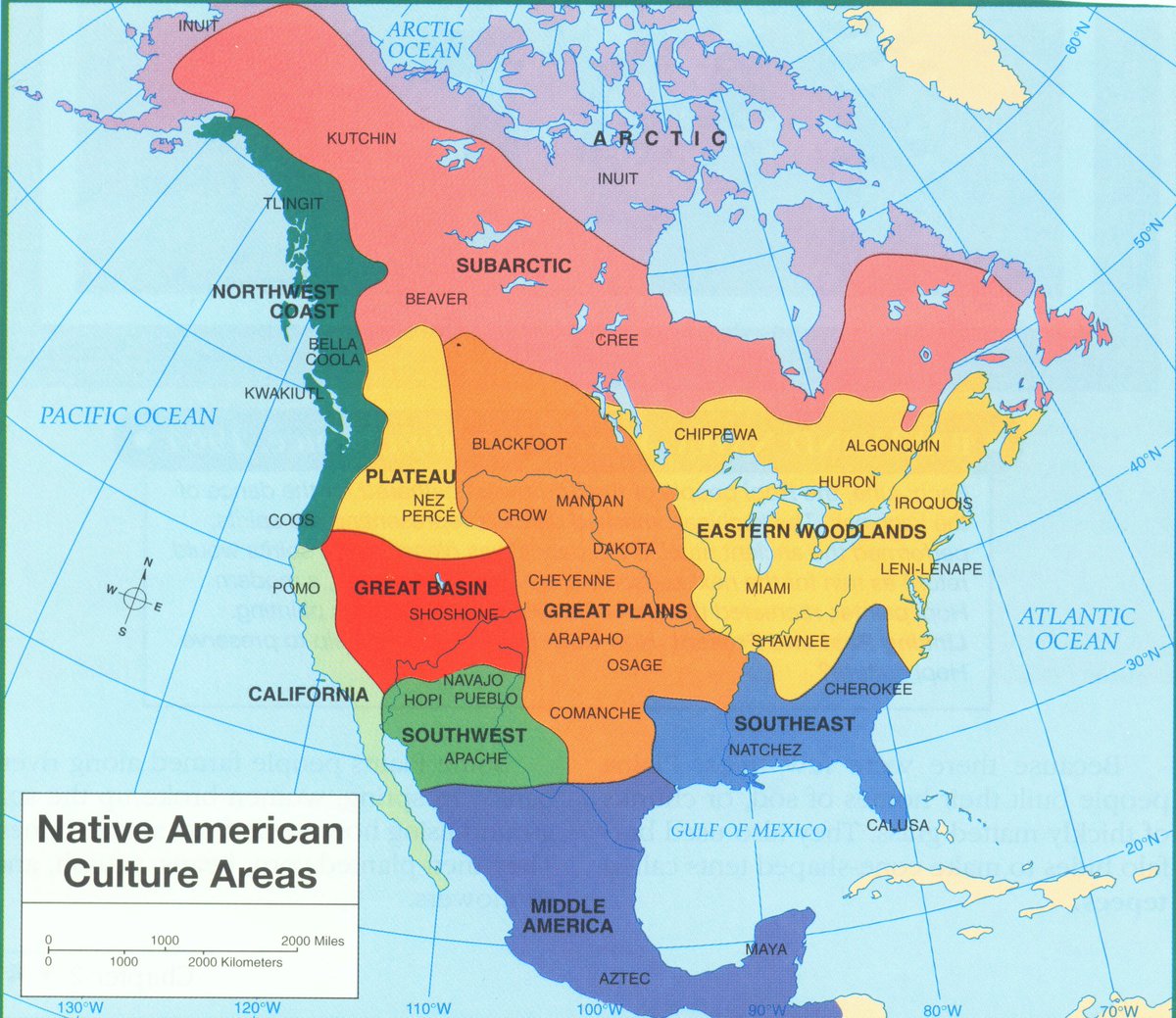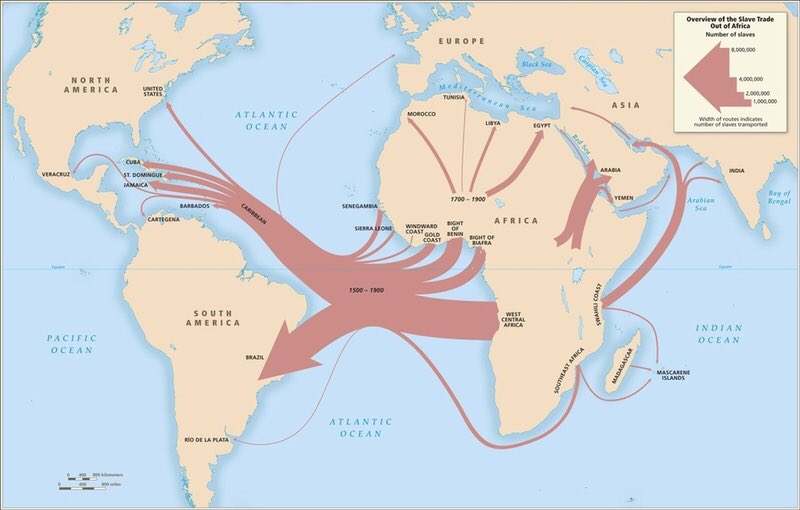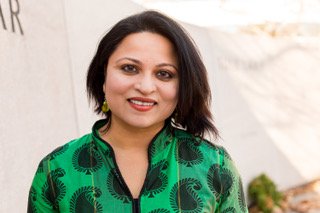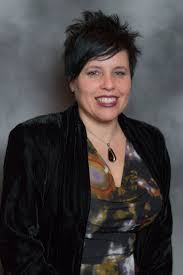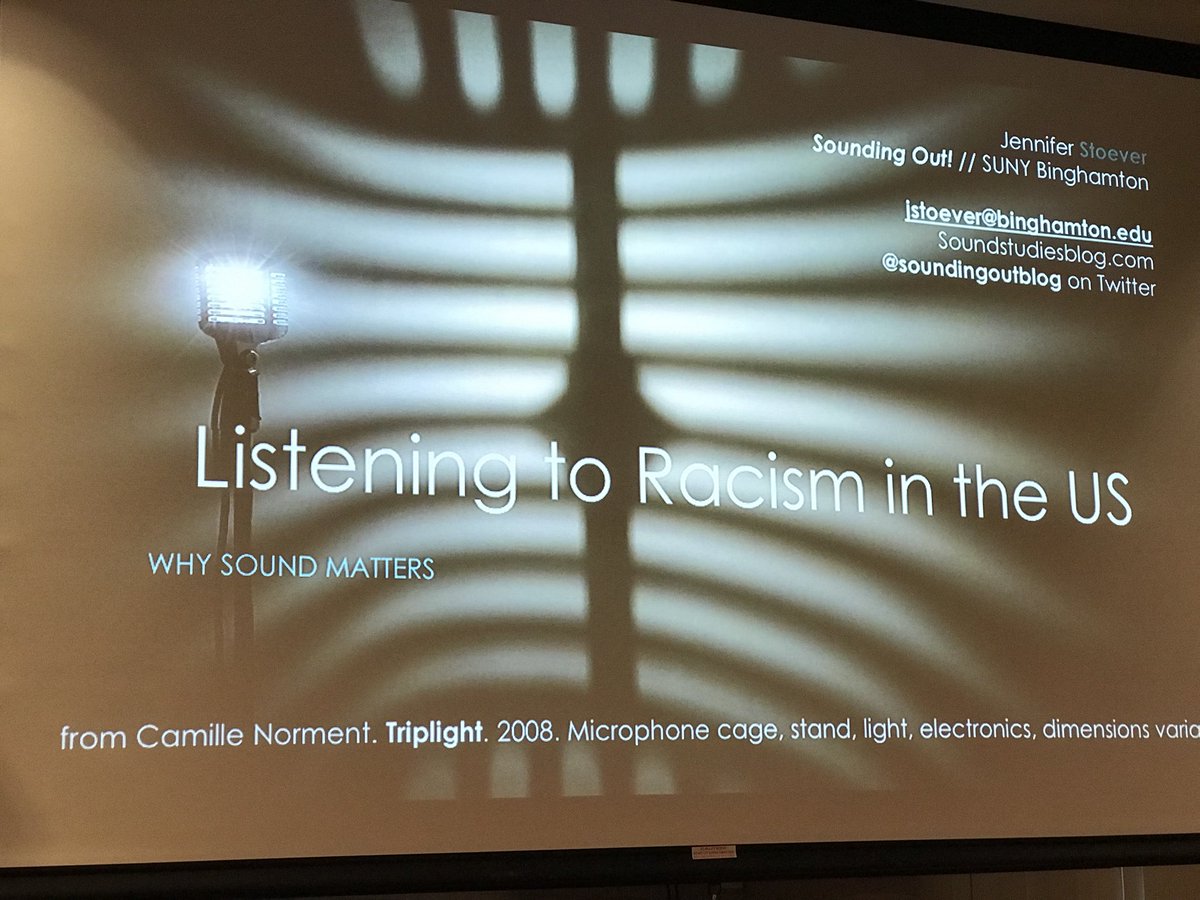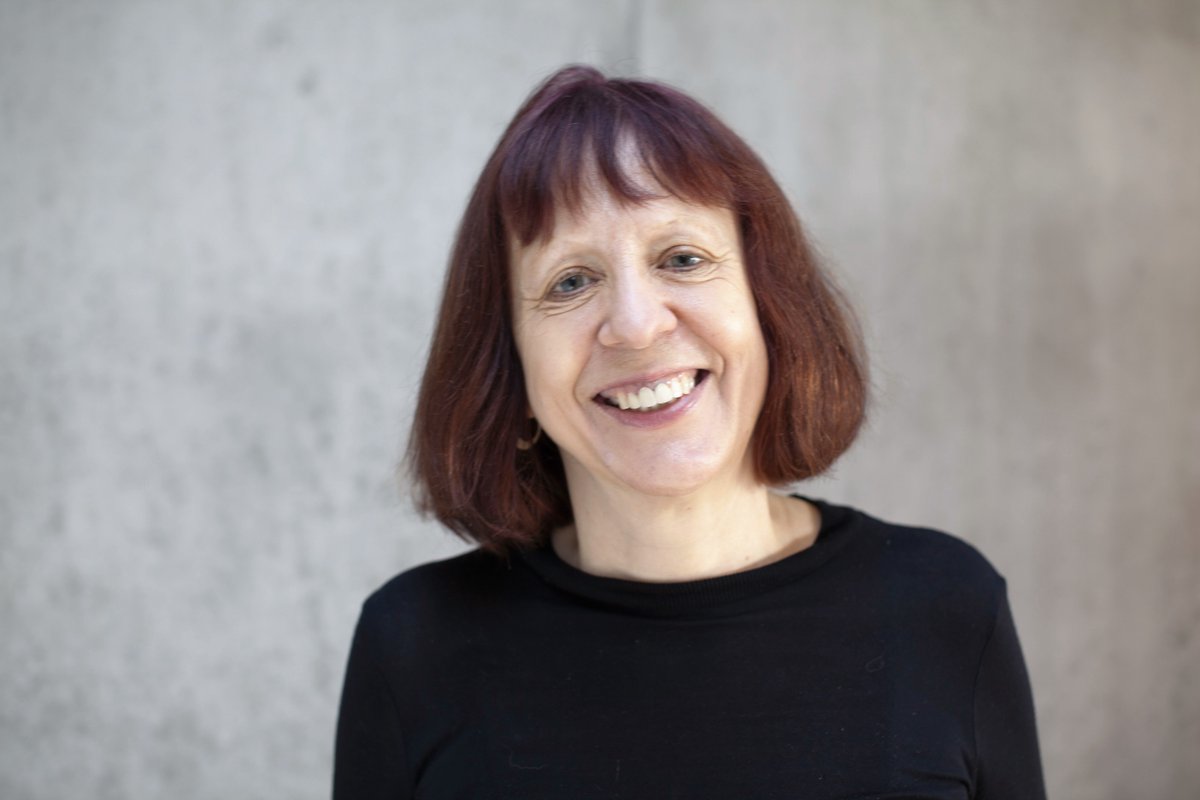The Dresher Center & @UMBCresearch are pleased to welcome @BmoreDoc, @histgeoghealth, @KBankoleMedina, and @NarrativeMed to today's Research Forum on #PublicHumanities & #HealthJustice! 
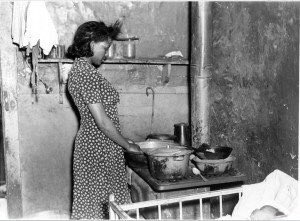
Karl Steiner, the @UMBC Vice President for Research, kicks off our @UMBCresearch forum #PublicHumanities #HealthJustice 
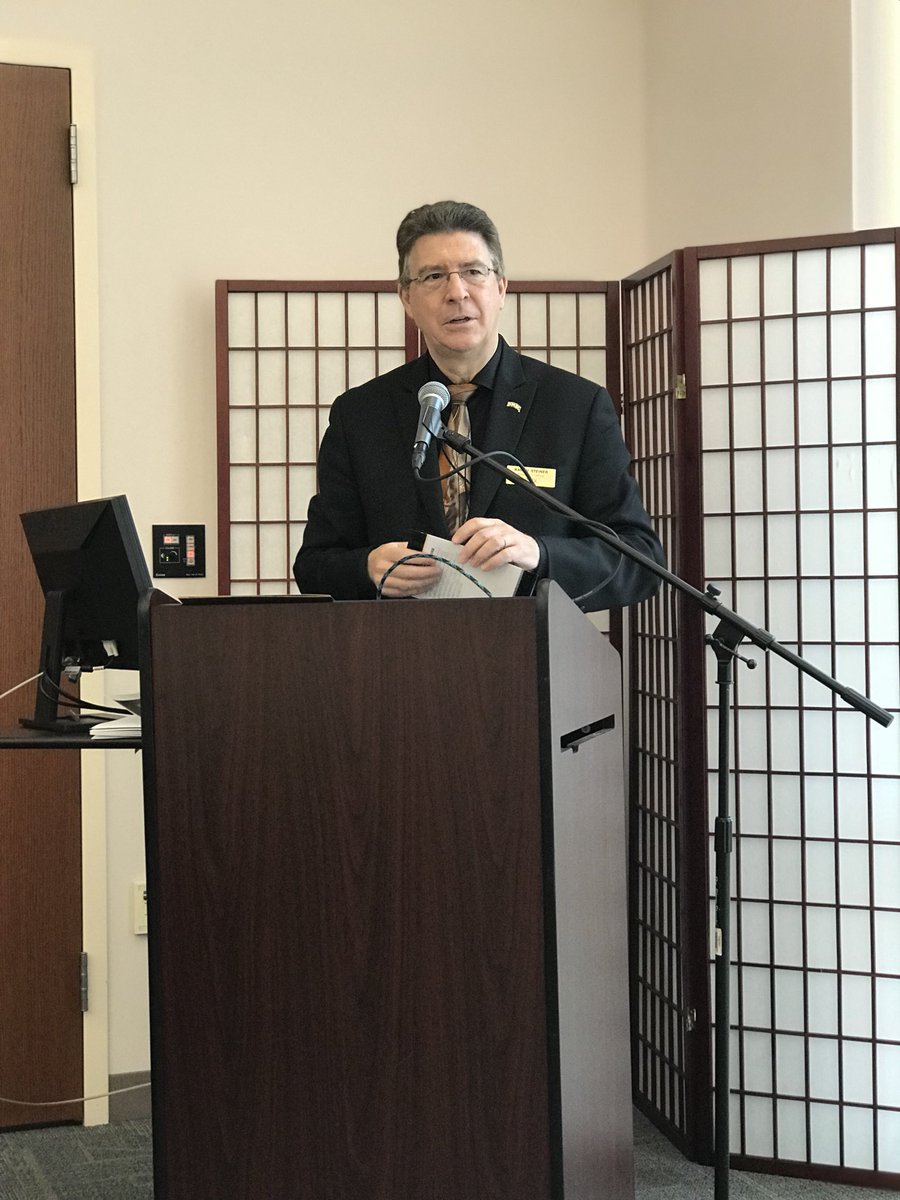
Steiner: This is our sixth research forum, started in 2014. The forum is intended to bring academic communities together from outside and inside campus. Strong representation from @UMBC_CAHSS 
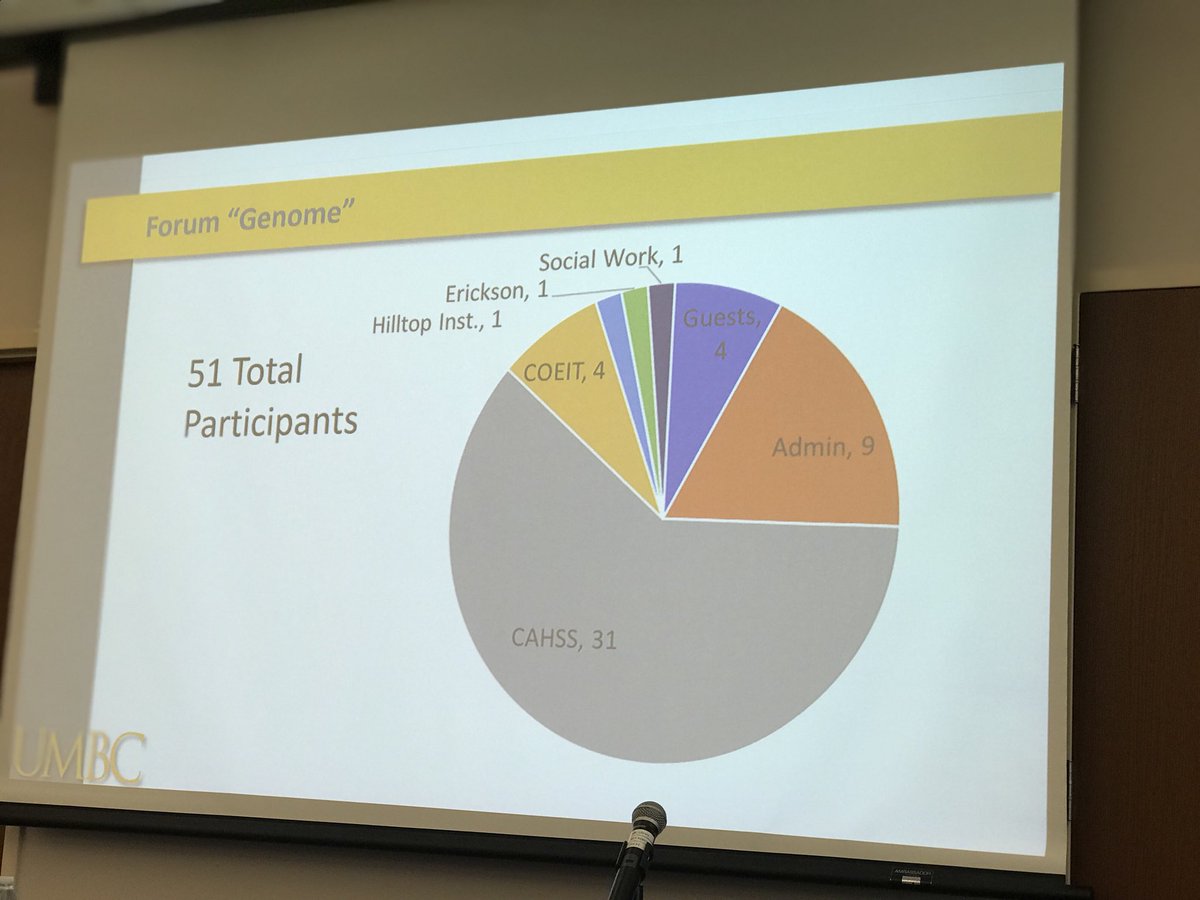
Jessica Berman, director of the Dresher Center, talks about today’s forum which will highlight the intersections between #publichumanities and #healthjustice. Humanities is a problem-solving methodology and a question-asking one. @UMBCresearch 
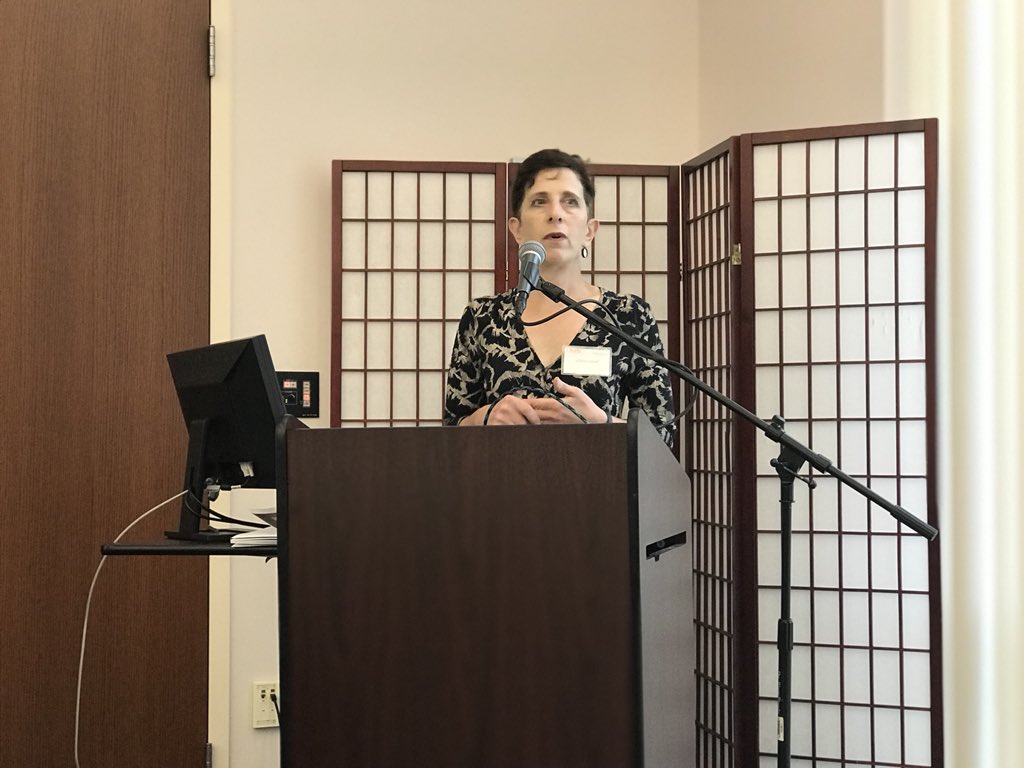
Our keynote speaker is Graham Mooney (@histgeoghealth), Associate Professor at the Institute of the History of Medicine @JohnsHopkins. He will speak about the 1948 Baltimore Medical Care Plan #publichumanities #healthjustice 
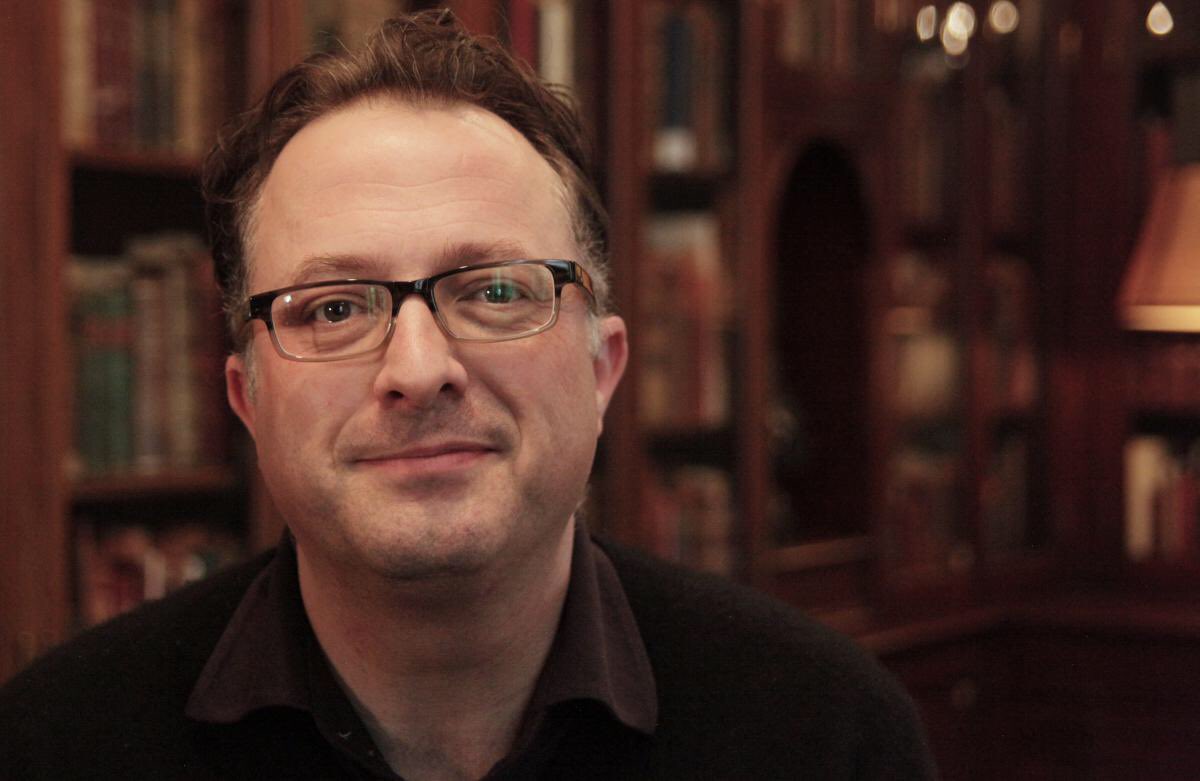
Mooney: When you talk about public health in #Baltimore, you can’t avoid discussing hypersegregation and race. #publichumanities #healthjustice
Mooney: Baltimore and Maryland’s medical care plan was one of the first state-funded health care plans in the country.
Mooney: #Baltimore is one of the most hypersegregated cities in America. This was also the case in the the 1940s and 1890s as well. 


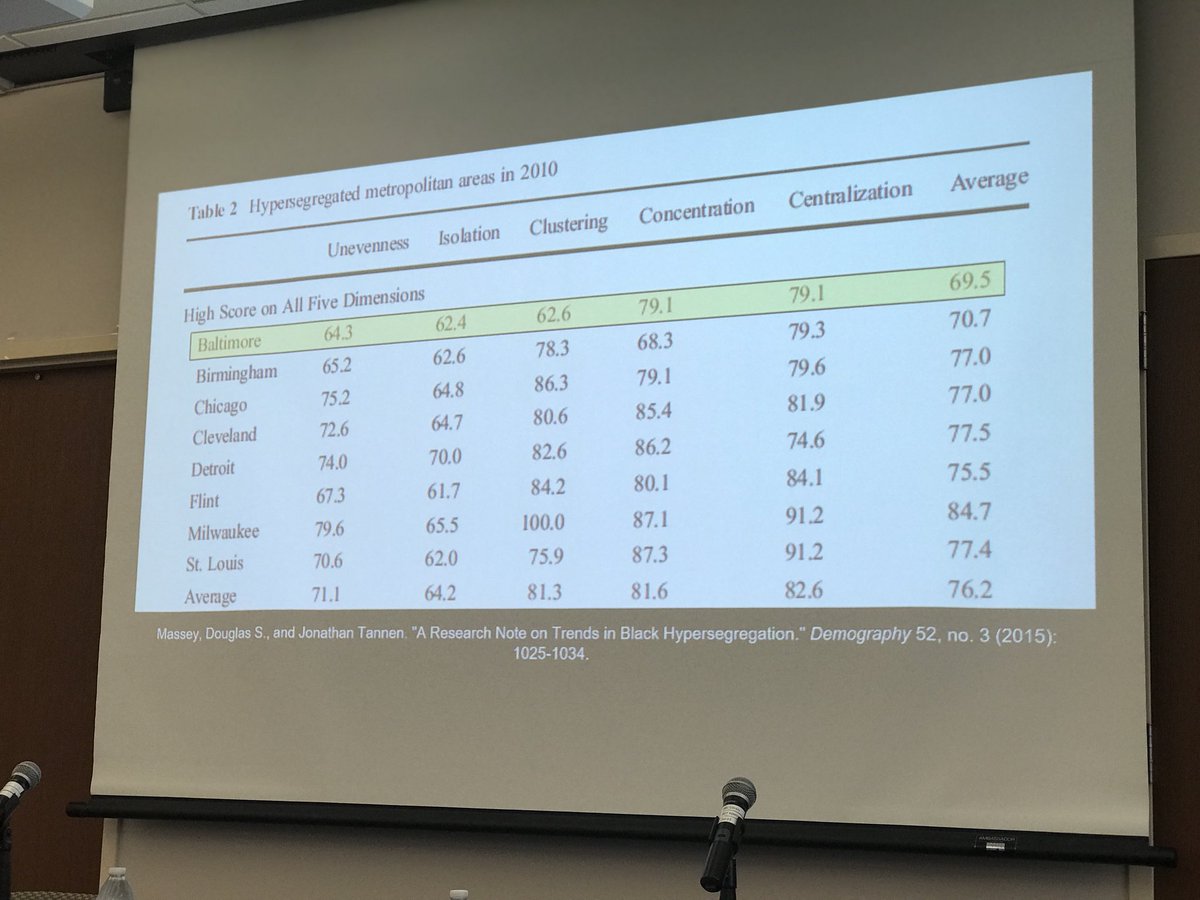
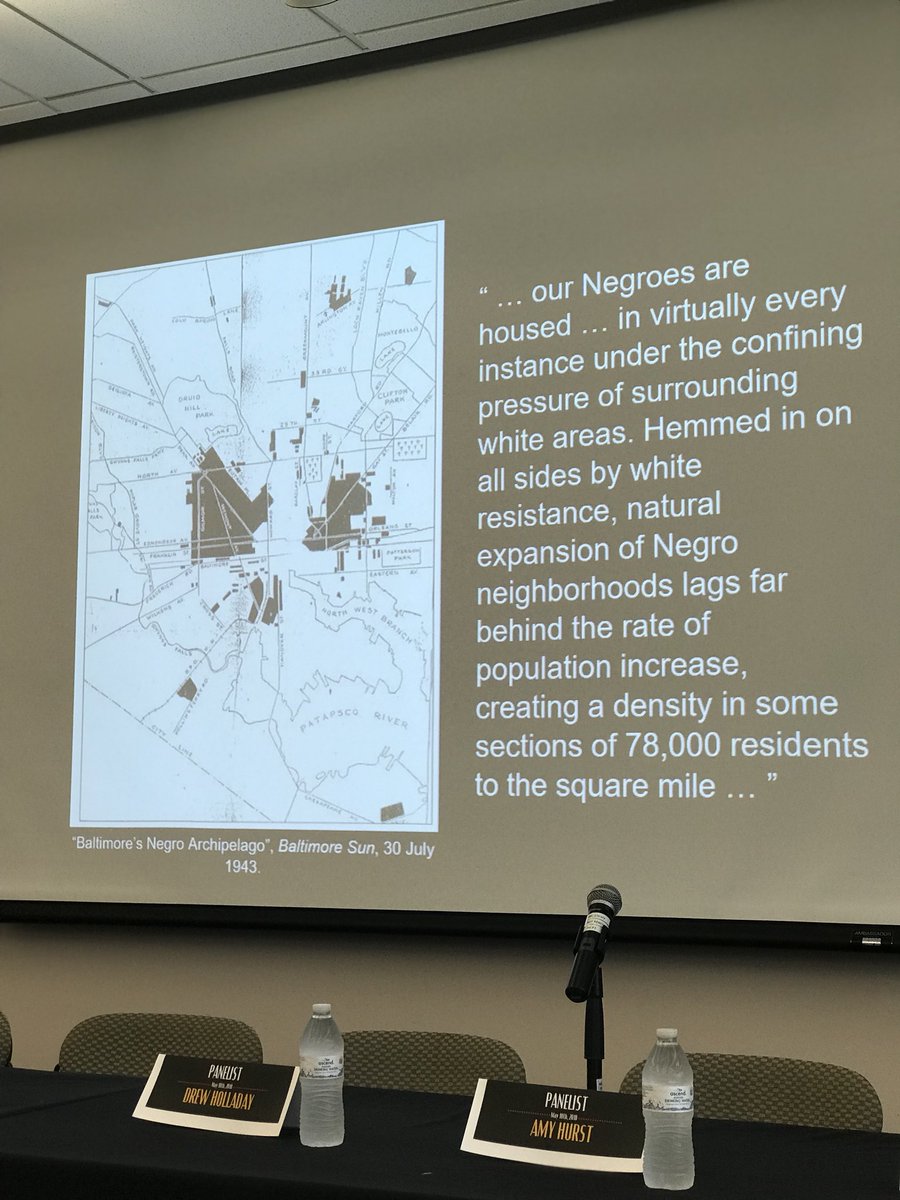
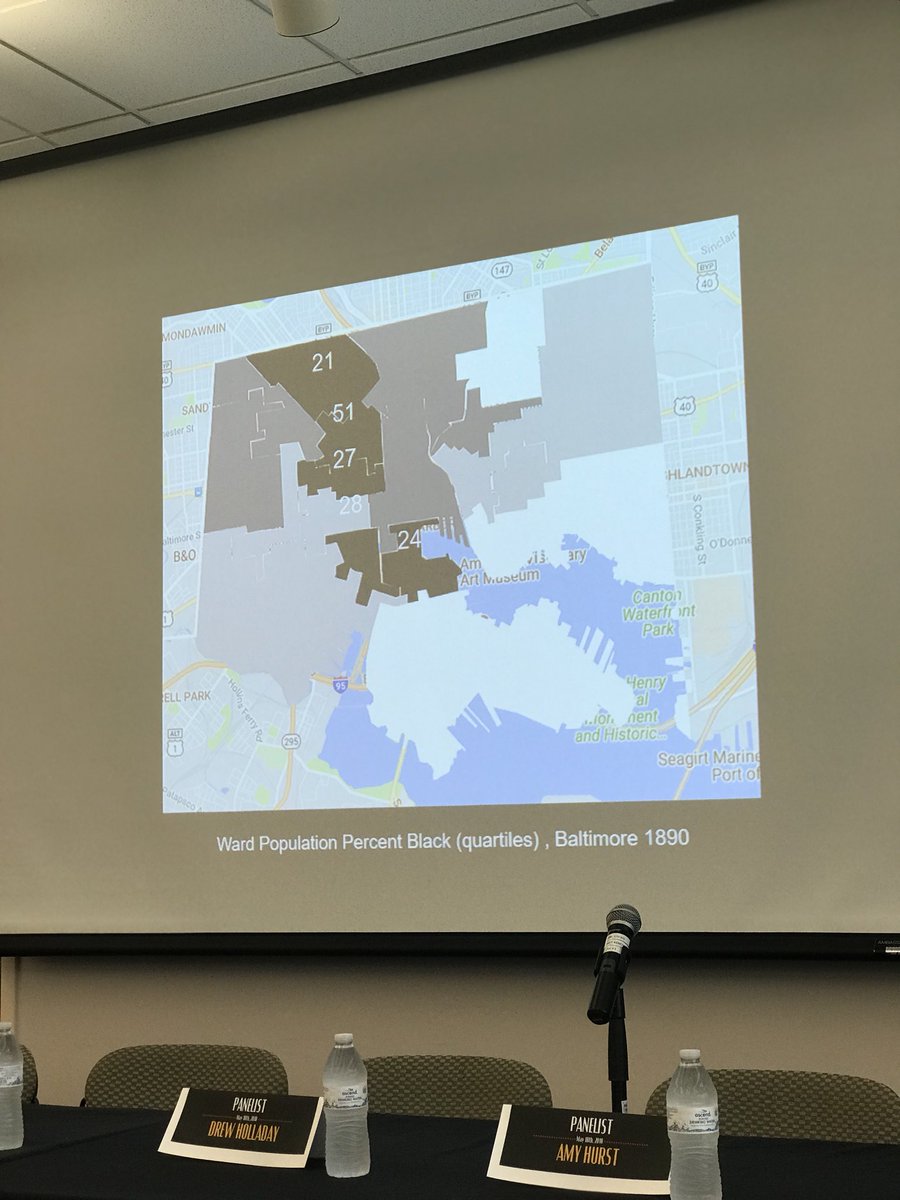
Mooney: There are three ways to segregate
1. Housing ordinances
2. Restrictive covenants
3. Redlining
1. Housing ordinances
2. Restrictive covenants
3. Redlining
Mooney: In 1910, #Baltimore passed the first block-by-block segregation ordinance. 
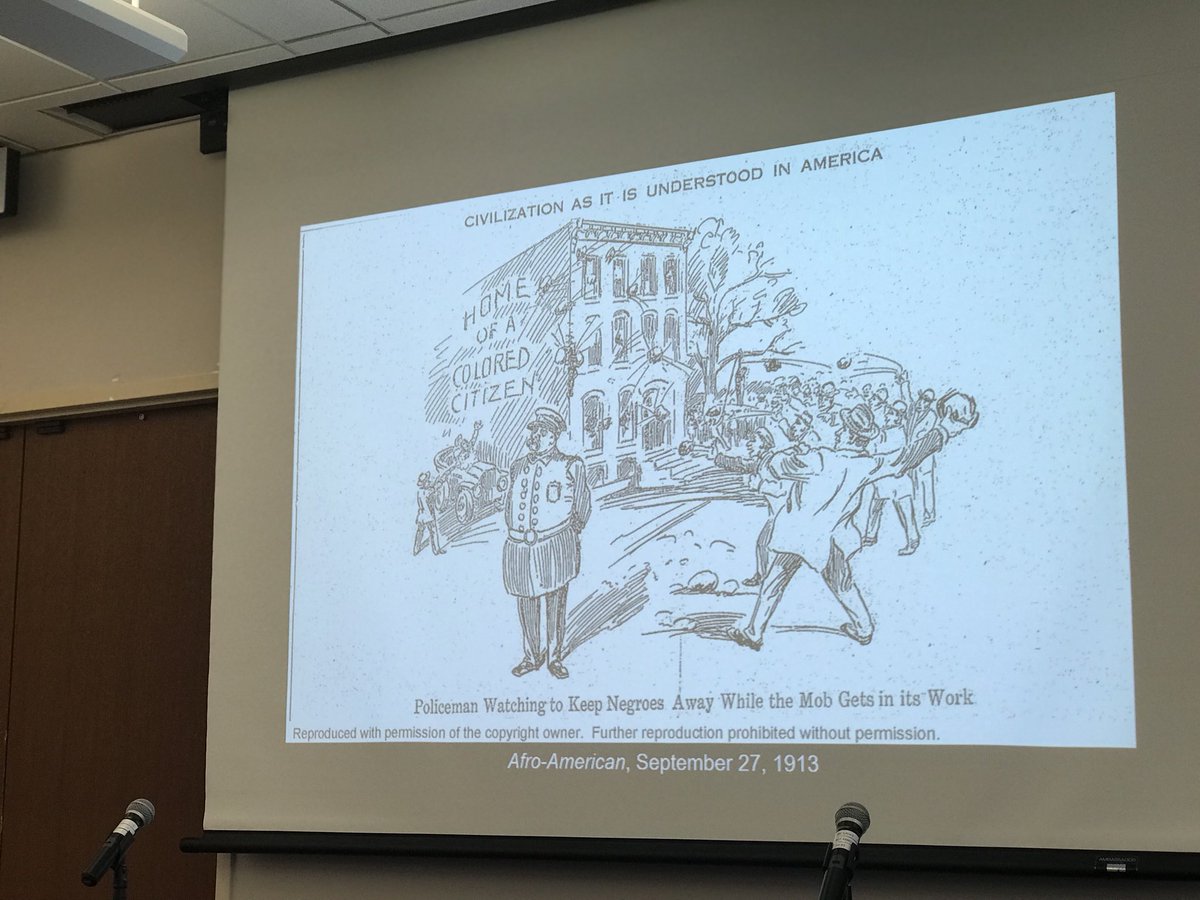
Mooney: Housing developers proudly advertised their restrictive housing covenants, particularly in neighborhoods like Roland Park and Guilford 

Mooney: Home loan companies were using the racial makeup of a neighborhood to determine its economic value 
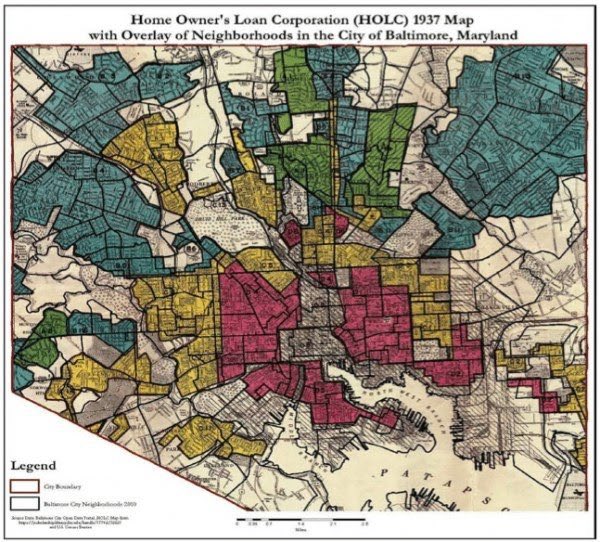
Mooney: How do primary care and segregation come together? Medicine itself was always exclusionary. In the 1915 Flexner Report, Dr. Abraham Flexner’s evaluation of 15 Black medical schools deemed them as having no value
en.m.wikipedia.org/wiki/Flexner_R…
en.m.wikipedia.org/wiki/Flexner_R…
Mooney: The subsequent closure of some medical schools caused a contraction of Black health professionals.
Mooney: In 1926, the Baltimore Urban League published a report highlighting the discrimination of medical access for Baltimore’s Black residents. 



Mooney: The problem in Baltimore is that a large portion of the population were on public welfare rolls, so they had to make an exception. 

Mooney: This program exposed the massive difference amongst access to primary care in the city, as well as general practioners 





Mooney: Even once Medicare/Medicaid is introduced, these disparities still existed #publichumanities #healthjustice 
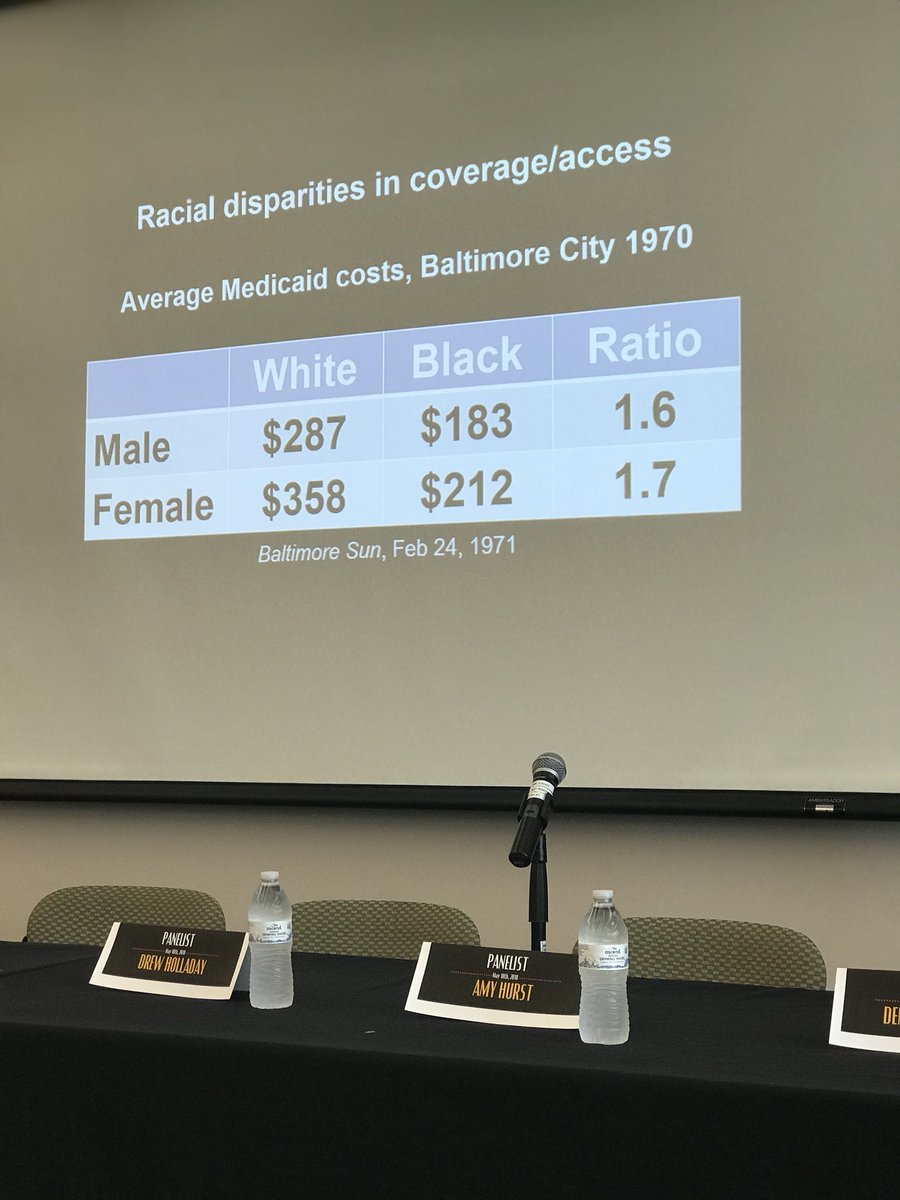
Mooney: These health issues are not going to change until the structures and the structural racism changes 

Coffee break! ☕️ Stay tuned for our first panel f. Kristen Slesar (@NarrativeMed), Shawn Bediako, Drew Holladay (@drewholladay), Amy Hurst (@amyhurst), and Denise Meringolo (@DDMeringolo)
Dean Scott Casper is serving as our moderator for “Listening as Public Practice: Towards Equity and Justice” 

Slesar: Narrative medicine is medicine practiced with the narrative conpetence to recognize, absorb, interpret, and be moved by the stories of illness.
Slesar: Medical professionals are typically trained to interact with patients in ways that counters the way we interact as humans
Slesar: Narrative medicine is designed to take you back to the days when doctors treated you since you were a baby and visited your home. 

Slesar: When I was treated for meningitis ten years ago, I was referred to as “The Meningitis” by medical professionals in a hospital where I worked.
Slesar: We read anything from literature to prose. Not always related to medicine. But we want to practice reading and paying attention to stories. 

Slesar: You can never be total competent in understanding a story. Its not possible and its not ethical. What stories are being told and what stories are being kept silent? 

Slesar: Humans are terrible and health injustice is ENORMOUS
Slesar: Narrative medicine is how you can get past all the elephants in the room (racial and economic disparities, etc)
Slesar: The Veterans Administration and the prison system are the largest providers of healthcare in the country.
Slesar: It is important to provide historical context and to ground the students with the idea that things like the Tuskegee Syphilis Experiment still happen today.
Slesar: Students realized that they can be personal AND professional at the same time.
Slesar: Stories matter
Shawn Bediako (Psychology: sickle cell disease has been racialized and is often perceived as a Black disease. Sickle cell is NOT a Black disease, however, the majority of people who have been diagnosed in the US are of African descent. 

Bediako: We know more about Dr. James Herrick who “discovered” sickle cell anemia than the patient who it was discovered in 

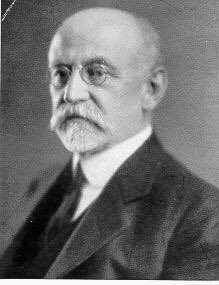

Drew Holladay (English): Listening is a process that needs to happen as your research is evolving. You need to listen to the communities that you are studying. The stories of the patients should have as much value as their medical conditions.
Holladay: Communities become research partners who actively contribute to academic knowledge about themselves and influence its interpretation and application.
Holladay: Autism and PTSD is often medicalized but patients often talk about their conditions in terms of how they feel
Holladay: A group of students created @StigmaFreeUMBC to help lift the stigma of mental health of campus stigmafree.umbc.edu
Amy Hurst (Information Systems): Human-centered community is deeply rooted in design, behavioral science, and computing. It also uses technology to help people but also evaluates whether or not technology is preventing people from seeking help.
Hurst: Accessibility is about more than just ability. We must understand the end user.
Denise Meringolo (History): Preserve the Baltimore Uprising is a project that came out of a sense of urgency in the aftermath of the 2015 Baltimore Uprising. baltimoreuprising2015.org
Meringolo: Who’s voices are we going to hear when we look back at this? Sometimes the loudest voices are not the ones that we should be listening to.
Meringolo: Too often the history of unrest are filtered through the lense of government agencies. These records are often held in museums, which hold a sense of stature, and this creates the idea that this is the authority on the history.
Meringolo: Collections can be implicated in perpetuating inequity. Historical records need to reflect a more complete history.
Meringolo: Oral history requires mindful listening and creates meaningful dialogue.
Meringolo: By crowdsourcing, we are circumventing the barriers of a traditional collections policy.
.@UMBC President Freeman Hrabowski recently spoke at the graduation ceremony for the Univ. of Maryland Medical School. He urged them to listen to their patients first. 
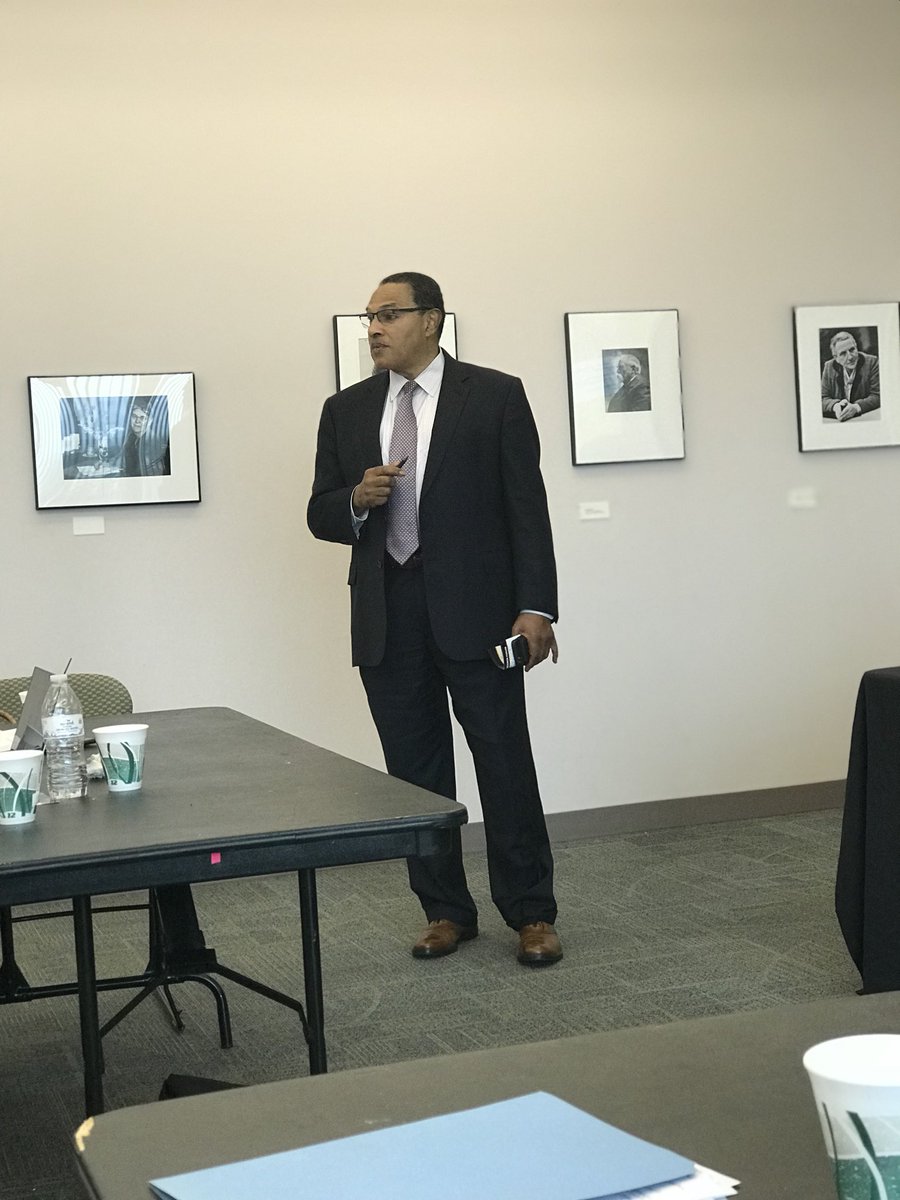
Another coffee break. Our second panel will begin soon f. Lawrence Brown (@BmoreDoc), Dena Aufsesser, Katherine Bankole-Medina (@KBankoleMedina), Dawn Biehler, and Jennifer Maher
Our featured speaker for this panel, “Communication, the Urban Environment, and Health Justice,” is Lawrence Brown, Associate Professor, School of Community Health and Policy @MorganStateU 
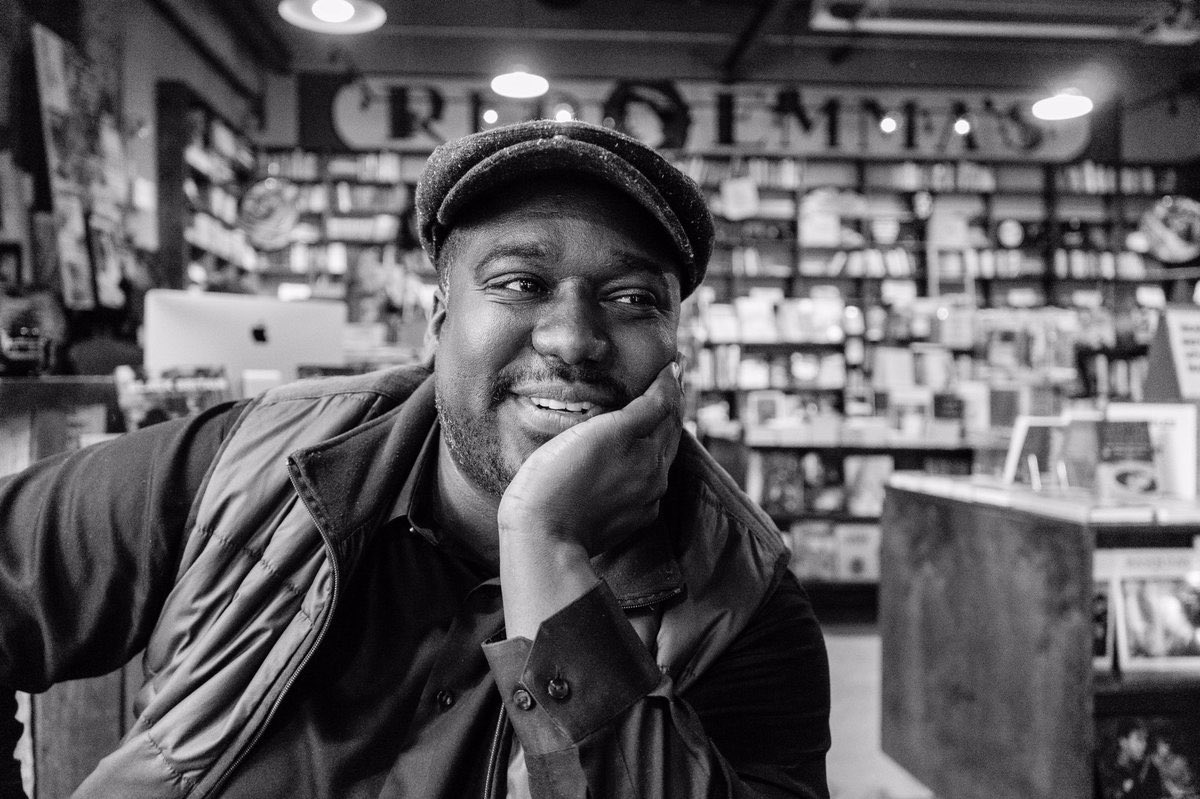
Brown: This map shows us who has access to capital. Baltimore has only been a majority white city since the mid-1970s 

Brown: The opiod crisis largely impacts the white population because they have greater access to medication. Black patients are underprescribed pain medication because of the belief that they have a higher pain tolerance. google.com/amp/s/www.thea…
Dena Aufseeser (GES): I want to think about children as valid sources of knowledge regarding urban change and development. 

Aufseeser: I began asking children what poverty meant to them and how urban changes impact their experiences or understanding of poverty.
Katherine Bankole-Medina, Professor of History @CoppinStateUniv, will talk about “Immutable Historical Knowledge and African American Health Justice Activism”
Bankole-Medina: Historical knowledge is nuanced. My students often want facts. They struggle with the idea that history is both immutable and changing.
Bankole-Medina: Optimal health and well-being is impacted by environment, genetics, education access, and relationships.
Bankole-Medina: There is a human health compact that we have - we have a right to be healthy. Health inequities must be eliminated. People are entitled quality and affordable healthcare.
Bankole-Medina: We do care for each other. As Black people, who have been the least cared for, we have fought for better healthcare and have created our own healthcare methods.
Dawn Biehler (GES): In this scientific study, the scientists wanted to study mosquitos’ impact in neighborhoods across social and economic gradient. The people in these communities didn’t care about mosquitos. They cared about lack attention from sanitation, etc.
Biehler: Residents in West Baltimore were given cameras to take pictures of environmental hazards, trash, illegL dumping, etc. They then provided testimony about what they saw. They felt undervalued by the city.
Biehler: Sanitation and home abandonment are often correlated with a higher presence of mosquitos. This enabled the scientists and community members to find a common ground.
Biehler: United Urban Roots in Harlem Park took over two vacant lots and turned them into beautiful gardens. But it shows the power of communities to take responsibilities for their spaces.
Jennifer Maher (English): The infant mortality due to SIDS has been halved due to the Back to Sleep campaign en.m.wikipedia.org/wiki/Safe_to_S…
Maher: Despite the decrease nationwide, the Back to Sleep campaign has little impact in urban areas with large Black population. In 2009, Baltimore had the 6th highest rate of infant mortality rate due to SIDS.
Maher: B’More for Healthy Babies started a Sleep Safe campaign to raise the awareness of SIDS
Thank you all for a great research forum. Shout out to @BmoreDoc @KBankoleMedina @histgeoghealth and Kristen Slesar of @NarrativeMed for bringing their expertise to @UMBC
@threadreaderapp unroll
• • •
Missing some Tweet in this thread? You can try to
force a refresh


